Mohammad Javad Zarif made the remarks in the Stockholm International Peace Research Institute on Wednesday in response to questions regarding the next steps that Iran might take in the face of continuing violations of the nuclear agreement by the other parties.
“…The nuclear agreement was negotiated with open eyes. So, we did not trust each other. We knew that one or the other party might violate the deal. So, we put mechanisms in the nuclear agreement on how to deal with violations. And one of the mechanisms in the agreement is that anybody accuses the other side of violating after going through a procedure that is described in the JCPOA can start their own commitments. And we are doing exactly that. We are not withdrawing because we believe it is good agreement,” Zarif said in response to the question.
The foreign minister also responded to a question about the possibility of the holding talks with the United States, saying “on negotiating with the United States, we did negotiate with the United States. This is not as if this agreement was negotiated in vacuum. This agreement was negotiated through many hard hours, long hours of negotiations and I know as a person who negotiated it that if we open it up, we will open a Pandora’s box that we will never be able to close. That’s why we are prepared to help the United States to come back to this agreement. But, we cannot allow an agreement that was fully negotiated to be opened up to be renegotiation.”
Regarding the third phase of Iran’s steps to reduce its JCPOA commitments, the top diplomat said “we are not moving away from the JCPOA. We are working within JCPOA. United States moved away from the JCPOA. It is not us. We are working within the JCPOA. We do not think that the Europeans have that remedy. …the reductions in our JCPOA commitments are remedy against their wrongful act, so they cannot make that a cause for new actions legally. So, we will take the next step, but, the important characteristics of the steps we have already taken, although they are important steps, but they can be reversed within hours not day. And we have said as soon as Europe starts not the US, if the US comes back to JCPOA and lift the sanctions then so much the better. But even if the US does not come back to the JCPOA and Europe simply implements its part of the bargain, then we will immediately not within even days, within hours reverse to the original state. So, that is an option before our European partners.”
On May 8, the anniversary of the US withdrawal from the nuclear deal (JCPOA), Iran announced that it was partially discontinuing its obligations under the JCPOA and urged nuclear deal remaining signatories – China, France, Germany, Russia and the United Kingdom – to shield Tehran from Washington's sanctions.
Tehran says its countermeasures fit within its rights under paragraphs 26 and 36 of the nuclear deal, and that it will reverse the measures once its demands are met.
As a first step, Iran increased its enriched uranium stockpile to a level above the 300 kilograms set by the JCPOA.
In the second step, Tehran began enriching uranium to purity rates beyond the JCPOA-limit of 3.76 percent and it has announced that it may increase the level of uranium enrichment to pre-JCPOA era to 20% as the third step to reduce its JCPOA-related commitments.
KI/IRN83445445; Youtube




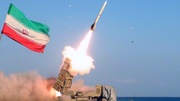
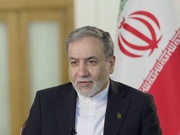
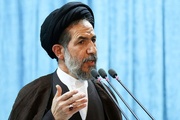

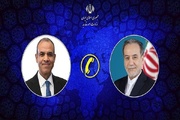
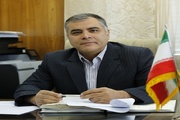
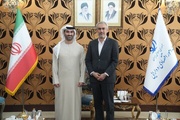
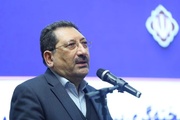
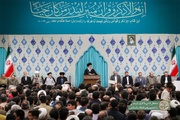
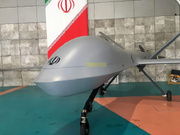











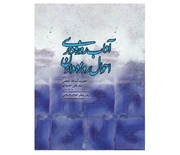
Your Comment